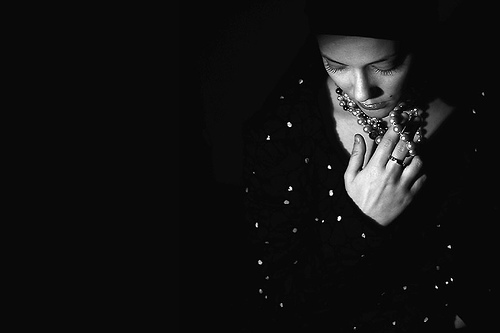 Women who suffer from chronic migraines are often told their pain will improve after menopause. The strong link between migraines and fluctuations in estrogen levels seem to have some effect on migraine occurence after menopause. While some women reported lesser instances and severity of migraine attacks during menopause, it has not been the case for others.
Women who suffer from chronic migraines are often told their pain will improve after menopause. The strong link between migraines and fluctuations in estrogen levels seem to have some effect on migraine occurence after menopause. While some women reported lesser instances and severity of migraine attacks during menopause, it has not been the case for others.
Genetics, hormones, brain chemicals and inflammation of blood vessels are known to cause migraines. While hormones are only one factor, for some women they can play a major role in causing migraine pain.
Hormones and Migraine
Almost 60 percent of female migraine sufferers report a link between attacks and their menstrual cycle. Estrogen and progesterone levels fluctuate before menses and this fluctuation can cause migraines before, during and after the menstrual cycle. Stabilizing hormones is part of the treatment for some with chronic migraines. Using birth control pills, rings or patches can bring migraine relief for some women, but for others these treatments only worsen the problem. The theory that post-menopausal women no longer have migraines is based on the idea that without estrogen production there is no longer a cause for attacks. Unfortunately many chronic migraine sufferers know it’s not that simple.
Peri or Post: What Does it Mean?
Understanding the phases of menopause can be helpful in knowing what to expect when it comes to migraines. It’s difficult for women today to believe that the word “menopause” was practically a dirty word a generation or two ago. It was not referred to at all and was pertained to as something that happened all at once; one month you’re young and fertile and the next you’ve gone through “the change.” In actuality, there are in fact three distinct phases of menopause and women can begin experiencing the effects as early as their 30s.
-
Perimenopause
Most women begin having some evidence of perimenopause in their late 30s or early 40s. Estrogen levels begin to decline slowly as the ovarian hormones change. Periods may become irregular and mood swings, hot flashes and sleep disturbances are normal. For some women perimenopause marks the onset of their migraine problems and women with chronic migraines may suffer attacks more frequently as hormones fluctuate during this time.
-
Menopause
Menopause marks the natural permanent ending of the menstrual cycle. Once a woman has gone 12 consecutive months without menstruating she’s considered “menopausal.” Hormone-induced migraines can continue after menopause because there is still some estrogen being produced, just not enough to make a woman fertile
-
Postmenopause
This refers to the second year and beyond after menopause. Even during this phase of life a woman’s body continues to produce some estrogen and increased levels of progesterone are normal. Once again these fluctuations can be the cause of migraine attacks long after a woman has passed menopause.
Due to the concerns about osteoarthritis, osteoporosis and other disorders related to aging, some women choose to undergo hormone-replacement therapy after menopause. It should be pointed out that HRT can cause migraines the same way naturally produced hormones would. It’s a difficult choice for women migraine sufferers who have to weigh the health concerns related to low-estrogen to the possibility of migraine relief.
Treatments for hormone-related migraines include NSAIDs, prescription medication, diuretics, natural supplements and many types of alternative therapies. Those who live with the intense pain of chronic migraines know the search for the right treatment can be frustrating, but it’s a search worth taking. Different combinations of medication, lifestyle changes and other therapies can bring relief for many people. If you’re currently coping with hormone-related migraines brought on or worsened by the stages of menopause what treatments do you find helpful? Every woman is different, but sharing information may help some to find lasting solutions and break the grip of chronic migraine pain.
Image Credit: NuageDeNuit | Chiara Vitellozzi

